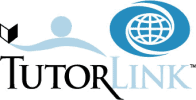Training high school students to tutor creates valuable learning opportunities for everyone involved. Students who learn tutoring skills develop stronger academic understanding, better communication abilities and increased confidence. This guide outlines practical approaches for teenagers who want to become effective peer tutors and for educators who support them in this process.
We explore key teaching techniques, relationship-building strategies, subject mastery methods and problem-solving approaches that transform regular students into capable tutors. These skills benefit both the tutor and tutee, creating meaningful educational partnerships that strengthen school communities and prepare teens for future leadership roles.
Starting With Strong Fundamentals
Great tutors need more than good grades; they need teaching skills. The foundation of effective tutoring involves understanding how people learn and process information. High school students interested in tutoring should start by observing experienced teachers and noticing how they explain concepts, check for understanding and adjust their approaches based on student responses.
Many schools offer a tutor training course that covers basic learning principles and teaching methods. Students can practice these techniques with friends or siblings before taking on formal tutoring roles. Pay attention to different learning styles and recognize that what works for you might not work for someone else. This awareness helps tutors develop flexibility and patience two essential qualities for anyone teaching others.
Mastering Communication Techniques
Successful tutoring depends on clear communication. Students need to explain complex ideas in simple language without talking down to their peers. Practice breaking complicated concepts into smaller manageable pieces that build on each other logically. Good tutors ask thoughtful questions that help students discover answers rather than simply providing solutions.
They listen actively to understand where confusion exists and then address those specific points. Body language matters, too, so learn to read signals that indicate confusion, frustration or understanding. These communication skills require practice but they form the core of effective tutoring relationships and transfer to many other life situations as well.
Building Supportive Relationships
The connection between tutor and student often determines success more than teaching techniques alone. Training high school students to tutor must emphasize creating safe, supportive environments where students feel comfortable asking questions and making mistakes. Tutors should learn to start sessions with casual conversation that puts students at ease before tackling difficult material.
They need strategies for maintaining appropriate boundaries while still being approachable and friendly. Good tutors show genuine interest in their students’ progress and celebrate small victories along the way. These relationship skills create trust, which opens students to learning and helps them persist through challenges instead of giving up when concepts seem difficult.
Planning Structured Sessions
Effective tutoring requires organization and planning. Students benefit from learning how to structure tutoring sessions with clear goals, warm-up activities, direct instruction practice opportunities, and review components. Tutors should develop templates for planning sessions that keep learning focused and purposeful.
They need methods for tracking progress, identifying areas that need more attention and adjusting plans based on student needs. These organizational skills prevent tutoring sessions from becoming disorganized or inefficient. Many students find that creating simple visual aids, concept maps, or practice problems ahead of time helps maintain session focus and addresses different learning preferences.
Handling Challenges Effectively
Every tutor faces difficult situations that require problem-solving skills. Students need preparation for handling unmotivated learners subject to confusion, learning plateaus or personality conflicts. Role-playing common scenarios helps develop response strategies before real problems arise. Peer tutors must learn when to persist with a teaching approach and when to try something completely different.
They also need to recognize which issues they can handle independently and which require help from teachers or program coordinators. Students who develop these problem-solving skills become resourceful, flexible tutors who can adapt to various teaching challenges rather than giving up when initial approaches fail.
Growing Through Reflection
Reflection transforms tutoring experiences into valuable learning opportunities. Students should learn to evaluate their tutoring sessions and identify what worked, what didn’t and why. Regular self-assessment helps tutors recognize patterns, improve weak areas and build on strengths. Keeping simple session notes supports this reflection process and creates a record of effective strategies for future reference.
Training high school students to tutor should include regular opportunities to discuss experiences with other tutors and receive feedback from program coordinators. This reflection process develops critical thinking skills that benefit tutors academically and personally beyond their tutoring roles.
Conclusion
When students learn tutoring skills, they gain valuable abilities that extend far beyond helping peers with homework. The process of explaining concepts, solving problems, and building supportive relationships develops communication, leadership, and thinking skills that serve students throughout life.
Schools that invest in training high school students to tutor create valuable resources for academic support while providing meaningful growth opportunities for the tutors themselves. These programs strengthen school communities, create positive peer relationships, and prepare students for future educational and career success.
TutorLink offers training for both professional and academic tutoring. Their certified programs give high school students the skills and confidence to become successful tutors, earning lifelong credentials.

